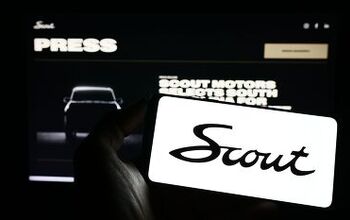Tesla's New Strategy of 'Not Paying' Elon Musk Costs $2.6 Billion

Tesla Motors previously announced that its CEO, Elon Musk, wouldn’t be paid unless its already high stock valuation continued to climb. His compensation package — valued at roughly $2.6 billion — is tied to a dozen operational milestones, all of them primarily linked to the company’s share price. However, the board has left the strategy’s fate in the hands of its shareholders, who will vote on the motion come March 21st.
In addition to Musk’s existing stock options, that bonus could result in a total payday of more than $55.8 billion over the next decade. That’s too much, according to proxy advisor Glass Lewis & Co. With the CEO already so finically invested in the company, Glass Lewis doesn’t believe any fee would have a meaningful impact on Musks’ involvement. He already owns at least 20 percent of Tesla’s stock, so any improvement in its valuation would already benefit him immensely.
“Any relative comparison of the grant’s size would be akin to stacking nickels against dollars,” Glass Lewis & Co. said in a report from February.
Still, there’s plenty of support for the pay package among shareholders. Baillie Gifford & Co. and T. Rowe Price Group Inc, who collectively own about 14 percent of Tesla stock, told Bloomberg they both back the plan to get Elon paid.
“We think what Tesla has achieved so far is pretty remarkable, but there’s more they can do in not just automotive, but the energy markets,” Tom Slater, a Baillie Gifford partner and fund manager, said on Wednesday. “Elon Musk — his drive and his vision — has been a really important part of getting us to this point. Tesla still needs that drive and that vision to push the business.”
Musks’ compensation package consists of 20.3 million stock options that will be vested in 12 increments, assuming market-value thresholds and financial targets are met. Each grouping equals about 1 percent of Tesla’s outstanding shares. However Tesla’s market capitalization has to reach $650 billion for the award to be granted in full. The company’s current market cap is around $55 billion.
If that sounds like a lot for a company still having trouble meeting production quotas, it is. However, Musk’s vision has helped Tesla become a darling for investors — garnering a ten-fold increase in its share price since 2013. The aim here is to dangle the bonus in the hopes it will keep the CEO invested in the automaker and steal his attention away from SpaceX and The Boring Company.
“The package was designed to retain him, and we are on board with the intention,” Joel Grant, an automotive and industrial analyst at T. Rowe Price, said in an interview. “We want to make sure that Elon stays and uses Tesla as a vehicle for a lot of growth.”
So far, Musk hasn’t indicated he plans to leave Tesla anytime soon. He even stated as much during last month’s earnings conference when he said he would stay on as CEO for the “foreseeable future.” But many investors don’t want to risk it.
“Think about Elon Musk and what he’s had to overcome to achieve what he has achieved. Everyone is aligned against him,” Ron Baron, chairman and founder of Baron Capital Inc., said via a phone interview. “The only reason why Tesla is successful is because of this guy.”
[Image: Tesla Motors]

A staunch consumer advocate tracking industry trends and regulation. Before joining TTAC, Matt spent a decade working for marketing and research firms based in NYC. Clients included several of the world’s largest automakers, global tire brands, and aftermarket part suppliers. Dissatisfied with the corporate world and resentful of having to wear suits everyday, he pivoted to writing about cars. Since then, that man has become an ardent supporter of the right-to-repair movement, been interviewed on the auto industry by national radio broadcasts, driven more rental cars than anyone ever should, participated in amateur rallying events, and received the requisite minimum training as sanctioned by the SCCA. Handy with a wrench, Matt grew up surrounded by Detroit auto workers and managed to get a pizza delivery job before he was legally eligible. He later found himself driving box trucks through Manhattan, guaranteeing future sympathy for actual truckers. He continues to conduct research pertaining to the automotive sector as an independent contractor and has since moved back to his native Michigan, closer to where the cars are born. A contrarian, Matt claims to prefer understeer — stating that front and all-wheel drive vehicles cater best to his driving style.
More by Matt Posky
Latest Car Reviews
Read moreLatest Product Reviews
Read moreRecent Comments
- MKizzy If Tesla stops maintaining and expanding the Superchargers at current levels, imagine the chaos as more EV owners with high expectations visit crowded and no longer reliable Superchargers.It feels like at this point, Musk is nearly bored enough with Tesla and EVs in general to literally take his ball and going home.
- Incog99 I bought a brand new 4 on the floor 240SX coupe in 1989 in pearl green. I drove it almost 200k miles, put in a killer sound system and never wish I sold it. I graduated to an Infiniti Q45 next and that tank was amazing.
- CanadaCraig As an aside... you are so incredibly vulnerable as you're sitting there WAITING for you EV to charge. It freaks me out.
- Wjtinfwb My local Ford dealer would be better served if the entire facility was AI. At least AI won't be openly hostile and confrontational to your basic requests when making or servicing you 50k plus investment and maybe would return a phone call or two.
- Ras815 Tesla is going to make for one of those fantastic corporate case studies someday. They had it all, and all it took was an increasingly erratic CEO empowered to make a few terrible, unchallenged ideas to wreck it.


































Comments
Join the conversation
“The only reason why Tesla is successful is because of this guy.”...successful at what, raising money? It’s certainly not successful producing fiscally viable numbers of cars.
$2.6 billion?? That's the approximate loss Tesla will have in financial year 2018.